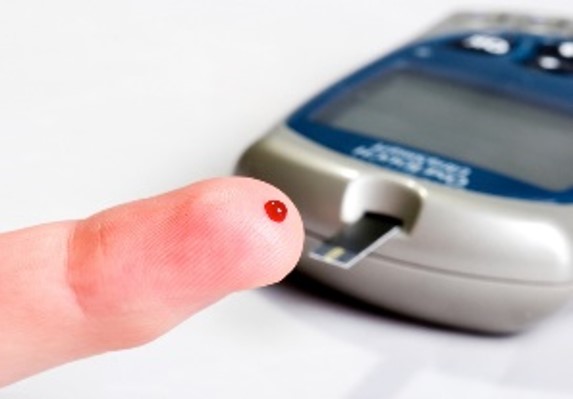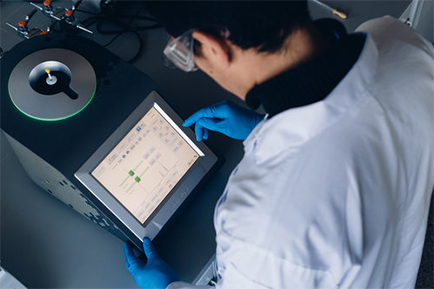Attest is developing solutions for health care providers, primarily endocrinologists and primary care physicians, to quickly and safely perform accurate metabolite testing at point-of-care (PoC). Our NMR instrument can detect and quantify metabolites important to human health and performance without breaking the skin. We also obviate recurring costs of lances, disposable test strips, or sensors.

Assisted Blood Glucose Measurement
Health care providers are often called upon to perform assisted blood glucose testing in diverse settings such as nursing homes, long-term care facilities, hospitals, group medical practices, health fairs, and senior centers. Existing blood glucose test technology designed for single-user self monitoring requires disposable reagents and lancing devices that present workflow challenges, high costs, and infection risks [1] in multi-user (large cohort) institutional settings. Non-invasive magnetic resonance technology can mitigate this infection risk, with lower recurring costs, and improved test accuracy for better clinical decision support.
Undiagnosed Diabetes
Globally there are 463 million people living with diabetes and about one-half are undiagnosed. In the United States it is estimated that about 22% of people living with diabetes are undiagnosed, costing $32B annually [2]. Given improved patient outcomes and lower costs associated with early detection and intervention there is a strong need for improved diabetes screening. A non-invasive test instrument that is easy to use and can be safely deployed at health fairs, senior centers, and group medical practices provides a lower cost screening methodology.


Metabolite Measurement
Over fifteen small molecule metabolites have been detected and quantitated non-invasively in vivo by high-field MRS. Glucose in human whole blood has also been quantitated with mid-field MRS on benchtop NMR equipment [3]. Many of these metabolites have important diagnostic and therapeutic roles. For example elevated L-lactate concentration in plasma is a biomarker for septic shock. LDL cholesterol is well recognized as a biomarker for cardiovascular disease risk. β-Hydroxybutyrate (BHB) is an important biomarker for diabetic ketoacidosis and also for monitoring seizure control. NMR spectra for these metabolites are archived in public databases [4]. We envision portable NMR spectroscopy enabling a wide range of PoC medical testing for advancing human health and performance.
